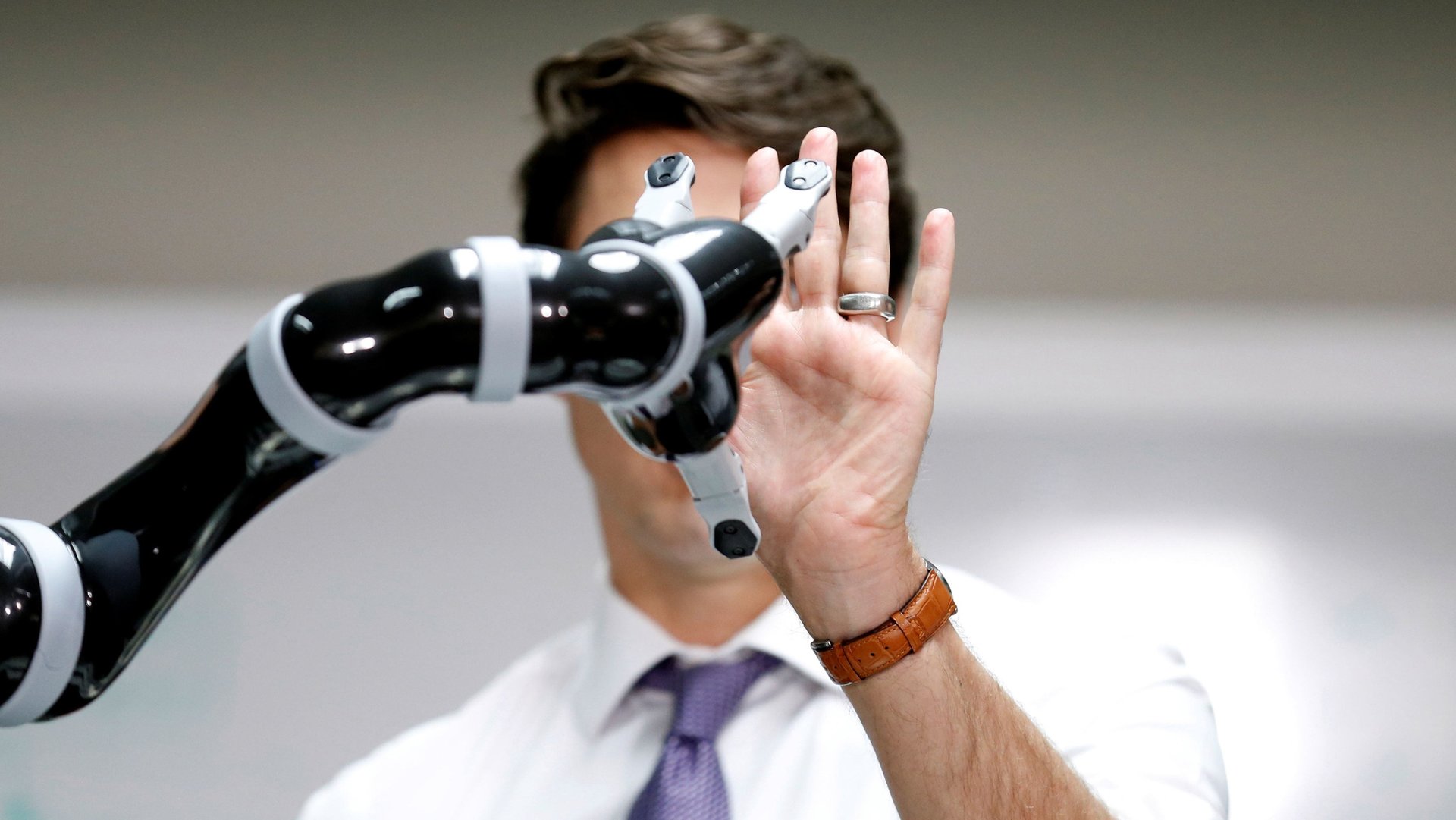Here’s how the plan to replace the humans who make iPhones with bots is going
Foxconn Technology chairman Terry Gou on Friday reiterated a pledge that the world’s biggest assembler of iPhones has made many times: that in a matter of years, human workers will be in a minority at the company.


Foxconn Technology chairman Terry Gou on Friday reiterated a pledge that the world’s biggest assembler of iPhones has made many times: that in a matter of years, human workers will be in a minority at the company.
Gou was speaking in Taiwan at the annual general meeting of the Hon Hai Precision Industry, as Foxconn is formally known. One of the world’s largest employers, Foxconn has spoken ambitiously about automation for years—but it appears to be going more slowly than the group would like.
In 2011, Foxconn said it planned to produce 1 million robots (link in Chinese) within three years to automate its manufacturing, according to Reuters. At the time the company employed an estimated 1 million workers in mainland China, and had been under fire after reports of numbers of worker suicides (link in Chinese) at its plants.
At the end of 2012, the company had 30,000 robots, far below the 300,000 bots it would need to build per year to meet its goal. In 2013, the company admitted the automation plans were proving difficult (link in Chinese). The robotic arms replacing human workers at Foxconn’s factories are known as “Foxbots.”
In 2015, Gou said at that year’s general meeting Foxconn would automate 30% of its facilities by 2020. The following year it said it had cut 60,000 jobs at one factory through automation.
It’s unclear exactly how many workers or robots it currently has—or how many jobs it has replaced with them. The company wasn’t immediately available to respond to Quartz’s queries.
It’s probably just as well the automation plans are going slower than hoped for. A company report listed the number of employees as of December 2016 at 837,000 (pdf, p. 3). Assuming 80% of those jobs are replaced, it would mean upwards of 500,000 people losing their jobs.
Still there are some signs that the market, at least, is confident of the company’s automation abilities. Earlier this month Foxconn Industrial Internet, a subsidiary that makes cloud services equipment and industrial robots used for electronics assembly, had an extremely successful listing on Shanghai’s stock exchange. In the first day of trading, it reached a market capitalization of $61 billion, making it the highest-valued tech company to be listed on the mainland.